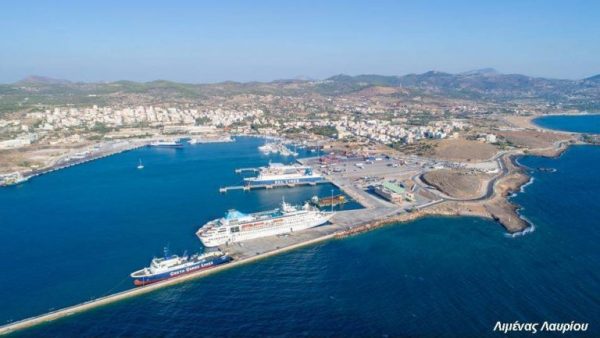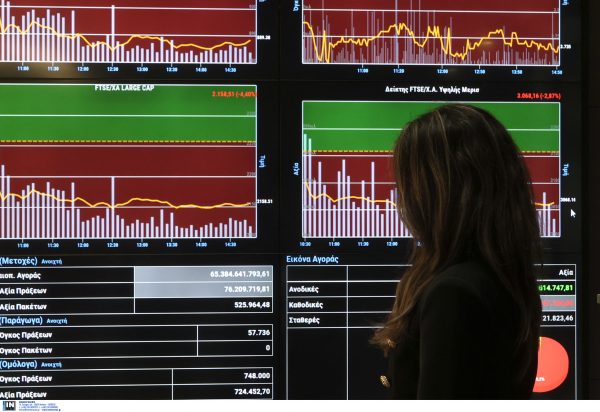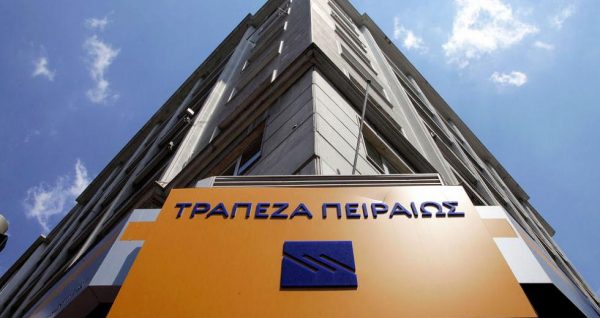
As the government measures its fiscal stance to announce new consumer-intervention measures, a week of revelations is coming starting tomorrow, both on the inflation front and on GDP. The financial staff expects to see the impact on the economy from the high levels of inflation in the economy and revenue.
Tomorrow, Hellenic Statistical Authority ELSTAT will announce GDP data for the first quarter, on Thursday it will announce the level of inflation for May, while in the coming days the Ministry of Finance will have in its hands the final data from the course of revenues in May. Despite high inflation, analysts see strong growth for 2022 but much lower than initially forecast. They exorcise the scenarios for recession and favor the course of tourism and the Recovery Fund as a stronger counterweight.
The first data from the bookings in tourism predict that occupancy may exceed 90% in some areas in June while the picture is very positive in the center of Athens. It is noted that in 2021 receipts reached 10.5 billion Euros, lower than the record of 2019 when travel revenues amounted to 18.179 billion euros, while in 2018 it was 16 billion euros. According to the data of the Bank of Greece in 2019 traffic reached 34 million travelers and the average spending per traveler was about 500 euros. Respectively in 2021 there were 15.2 million travelers, spending on average about 690 euros.
However, the data from the inflation front are not so promising. Eurostat recently announced that inflation in Greece reaches 10.7%. This percentage predicts that the national consumer index will hit red and estimates now show levels well above 11% in May, with average inflation to date exceeding 8%. It is noted that the forecasts of the Ministry of Finance place the annual inflation at 5.6% and expects its de-escalation from July, but the prices of fuel and commodities do not decline, thus specifying new revisions in the estimates.
Economists’ forecasts
In the unfavorable scenario, Eurobank sees growth of only 1.4% for 2022 (Interim Report on the Development of the Greek economy in 2022), with average inflation reaching 8.2%. The basic scenario of the bank predicts a growth of GDP by 3%, but also high inflation of 7%.
Also, a recent ING study sees a quarterly growth of 3% in the current second quarter and a slowdown to 2.2% in the third quarter, despite the inflation crisis. In its new report on the prospects of the world economy, it sees a recession in the second and third quarters of this year in some European economies. For Greece, it sees growth of 2.9% in 2022, to 2.4% in 2023, to 2.2% in 2024.
According to the Eurobank study, the adverse scenario assumes prolongation of the war and financial sanctions, leading to a larger supply shock, manifested by higher energy prices. In turn, this means higher and more persistent inflation (and consequent income erosion), more prolonged investment deferrals, lower external demand and more fiscal support measures.
Overall, this leads to an increase in real GDP of 1.4% on an annual basis in 2022. The magnitude of the difference between the baseline and the adverse scenario is due to the nature of the supply-side disruption that is assumed and, therefore, does not try to approach the worst case scenario, ie a cumulative effect of many negative factors.
The counterweights
Economists see that the Greek economy has significant counterweights that support the short-term outlook:
(a) there are expectations for a strong tourist season, provided that the situation in Ukraine is avoided. Also, the latest information shows undiminished activity in several other areas,
(b) Greece will benefit from a Recovery and Resilience Fund (largest beneficiary in the EU as a percentage of its GDP), the NSRF 2021-2027 and EIB funds, totaling around € 90 billion available over the next 5 years.
These funds, together with the mobilized private and banking funds, have the potential, not only to provide great liquidity, but to activate the transformation of the productive model of Greece towards sustainable development based on exports and investments. However, to achieve this, it is important that resources are effectively channeled into selected economic activities, in particular green transition and digitization as well as be accompanied by forward-looking and ambitious implementation of the structural reforms that accompany the disbursement of funds.
(c) the economy enjoys a very comfortable liquidity position: around € 34 billion of new deposits have accumulated in the pandemic with the help of fiscal support measures, the state has a liquidity cushion of around € 38 billion, around € 38.5 billion .
The government’s forecasts
The Stability Program, which was drawn up amid uncertainties due to the war in Ukraine and the ongoing energy crisis, provides for:
-Growth at 3.1% for 2022, new increase for 2023 of the order of 4.8%. For the years 2024 and 2025, it estimates GDP growth of 3.5% and 3.3% respectively.
-Inflation will increase this year to 5.6%, where there will be a peak. It forecasts an increase in the consumer price index by 1.6% in 2023, while in the years 2024 and 2025 by 1.7%.
– The new estimate for the deficit raises the target for this year to 2%, from 1.4% projected in the budget. From 2023, a return to primary surpluses is projected, specifically to 1.1%. Estimates for the years 2024 and 2025 are at 2.1% and 2.3% respectively.
-Regarding the public debt, the forecast of the Ministry of Finance records an estimate for its reduction to 180.2% of GDP at the end of this year. For 2023 a new reduction is estimated at 168.6%, in 2024 at 155.2% and in 2025 at 146.5%.
Latest News

Greek Retailers Remain Optimistic About Easter Shoppers’ Turnout
While stores are expected to be open on Sunday, April 28, the majority of Easter shoppers will likely do their shopping during the Holy Week, following the deposit of Easter bonuses

Europeche: Greek Apricot Production Recovers
Europeche forecasts the production will bounce back despite a slight decrease in varieties attributed to high winter temperatures

Bank of Greece (BoG): Business-Household Deposits Up 1,675bln in March 2024
In March 2024, the monthly net flow of credit to the general government was negative by 469 million euros

FT: Greece’s Economic Rebound a Balance of Growth and Poverty
Eurostat data revealed a significant 10.8% drop in Greek public debt relative to GDP in 2023, alongside a 2% economic expansion, outpacing Germany's performance.

Lavrio Port Authority Next Up for Privatization
A deadline for the submission of expressions of interest is May 14, 2024

Eurostat: Greece Records Largest Drop in Natural Gas Prices in 2nd Half of 2023
The price of electricity and natural gas in Europe was down following a substantial surge that began before the Russian invasion of Ukraine and peaked in 2022

GEK TERNA Still Considers Leveraging Concessions Portfolio as Financial Tool
President and CEO of Gek Terna George Peristeris explained the company's plans on Tuesday on the sidelines of the inauguration of sections of Greece's E65 highway

NielsenIQ: 3% Supermarket Revenue Increase in Q1
Private label products are gaining traction, comprising 25.4% of shopping basket shares, up from 24.7%

Store Hours Change Today in Observation of Orthodox Easter
The President of the Athens Chamber of Commerce hopes the Easter period will provide a much-needed boost to retail traffic in the capital

Athens-area Mass Transit Systems Set to Finally Install Contact-less Fare Payment
Paying fares via bank cards, smartphones and smartwatches in all mass transit systems in the Greek capital, namely, buses, trolleys, the metro and tram lines, is scheduled by the end of the year













































 Αριθμός Πιστοποίησης Μ.Η.Τ.232433
Αριθμός Πιστοποίησης Μ.Η.Τ.232433